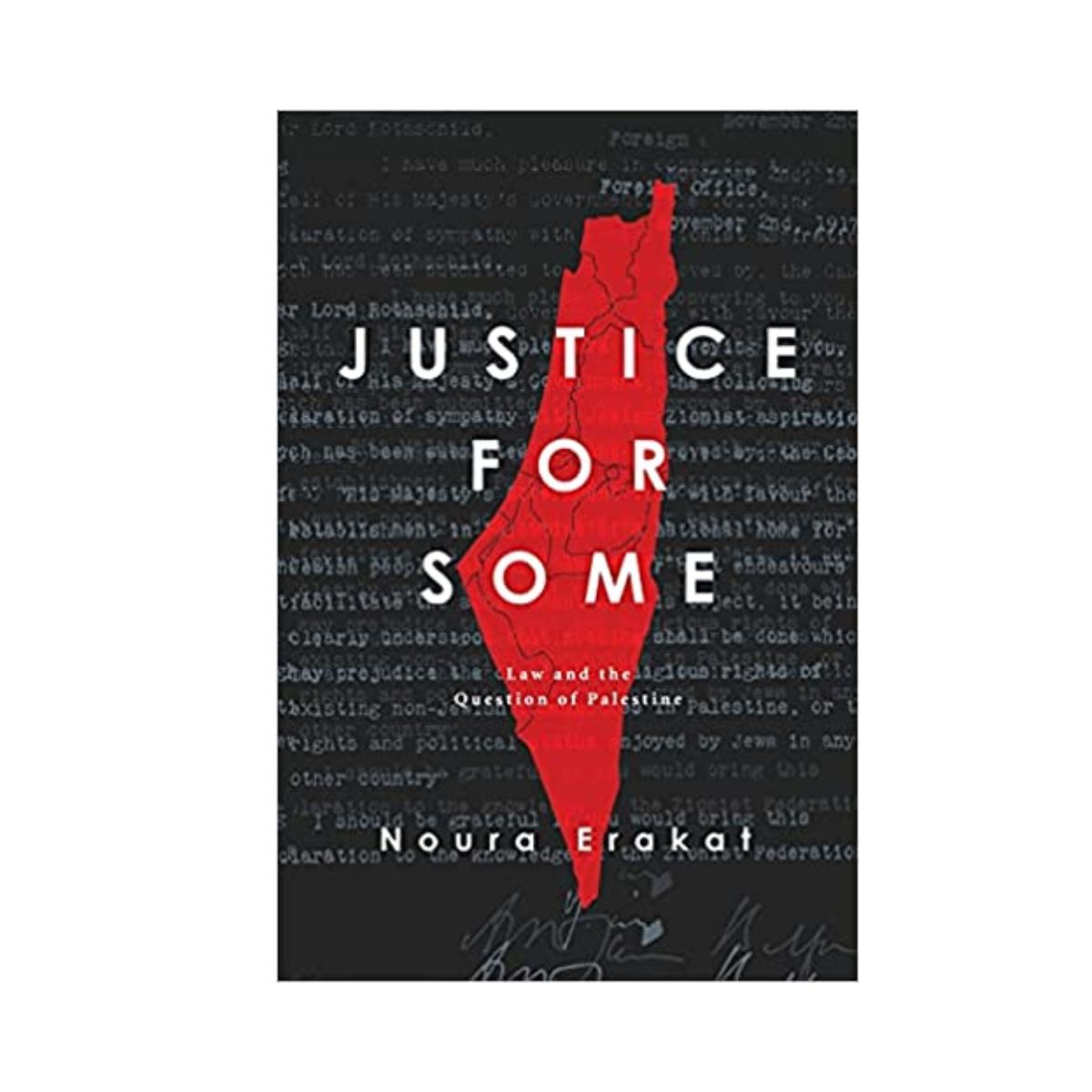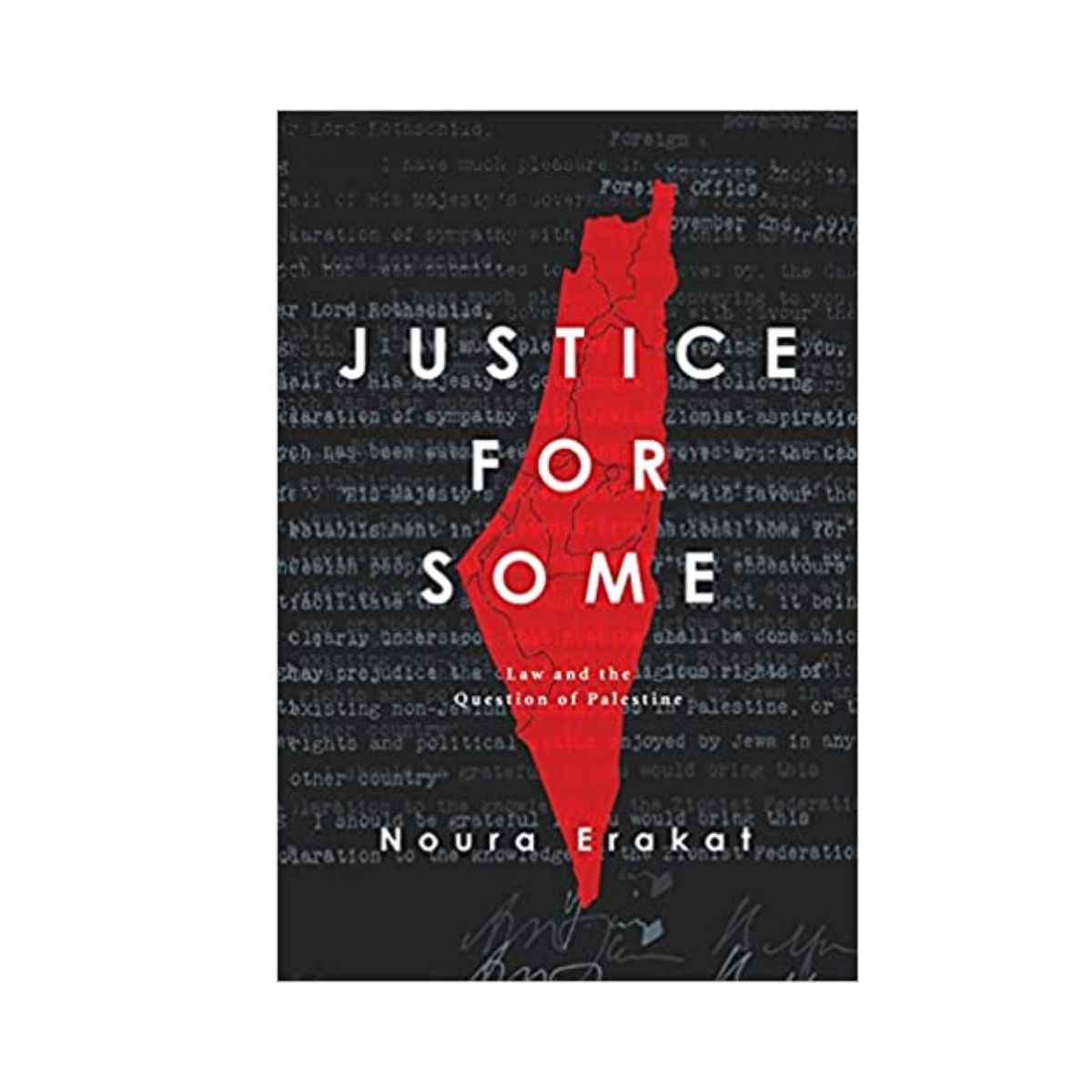Ingram
Couldn't load pickup availability
Justice for Some: Law and the Question of Palestine
By Noura Erakat
Justice in the Question of Palestine is often framed as a question of law. Yet none of the Israel-Palestinian conflict's most vexing challenges have been resolved by judicial intervention. Occupation law has failed to stem Israel's settlement enterprise. Laws of war have permitted killing and destruction during Israel's military offensives in the Gaza Strip. The Oslo Accord's two-state solution is now dead letter.
Justice for Some offers a new approach to understanding the Palestinian struggle for freedom, told through the power and control of international law. Focusing on key junctures―from the Balfour Declaration in 1917 to present-day wars in Gaza―Noura Erakat shows how the strategic deployment of law has shaped current conditions.
Over the past century, the law has done more to advance Israel's interests than the Palestinians'. But, Erakat argues, this outcome was never inevitable. Law is politics, and its meaning and application depend on the political intervention of states and people alike. Within the law, change is possible. International law can serve the cause of freedom when it is mobilized in support of a political movement. Presenting the promise and risk of international law, Justice for Some calls for renewed action and attention to the Question of Palestine.
Editorial Reviews
"Through a brilliant and bracing analysis of the Palestine question and settler colonialism, Noura Erakat offers a compelling story of how the antinomies of structure and indeterminacy shaped international law and its possibilities. Justice for Some is a vital lens into movement lawyering on the international plane. At once tragic and inspiring, this book is a must-read for anyone interested in decolonization and the politics of international law."
-- Vasuki Nesiah, New York University ― founding member of Third World Approaches to International Law (TWAIL)
"Noura Erakat brings a sophisticated understanding of the role of international law over the last century in the Question of Palestine. This brilliant book will be of great interest to anyone seeking to understand why the outcome, thus far, to the disposition of the Palestine problem has not been a just one."
-- Rashid Khalidi ― author of The Hundred Years' War on Palestine: Settler-Colonial Conquest and Resistance, 1917-2017
"Noura Erakat eloquently shows that, yes, the Israeli state project has been consolidated and expanded on a platform of might making right since 1948―but not only that. Israeli governments have also actively sought to craft legal justifications for the conquest and colonisation of territory, and to harness international law in their favour....[Erakat] has written a book that is a story of Palestine but is also a story of international law itself. Some of its most important insights are more universal than specific. They are major conceptual contributions with value well beyond the immediate case study."
-- John Reynolds ― Dublin Review of Books
"Erakat's critical perspective on international law and the focus on how Palestinians have used it to support their cause is a much-needed addition to the international law literature on the Israeli–Palestinian conflict....This is a book brimming with acute insights that deserves the widest possible readership."
-- Markus Gunneflo ― Journal of Conflict and Security Law
"Noura Erakat's incisive exploration of the role of law in shaping the development of Israel/Palestine reveals the consistent genuflection of international legal institutions to Israel's reliance on well-established colonial practices. She also forcefully argues that the skillful use of international law as a tool of struggle can be generative of hope and possibility―for Palestine and the world. Justice for Some is precisely the book we need at this time."
-- Angela Y. Davis ― author of Freedom Is a Constant Struggle: Ferguson, Palestine, and the Foundations of a Movement
Product details
Publisher : Stanford University Press; 1st edition (2020)
Language : English P
aperback : 352 pages
ISBN-13 : 978-1503613577
Dimensions
Dimensions
Care Instructions
Care Instructions


